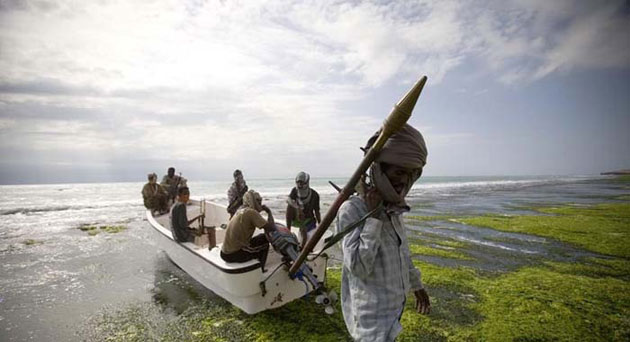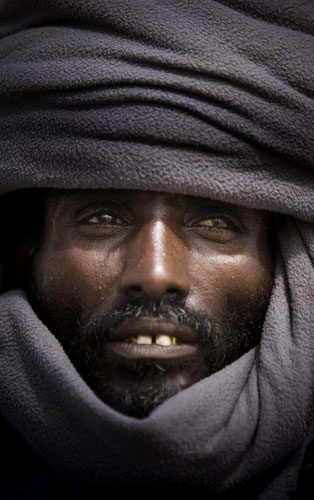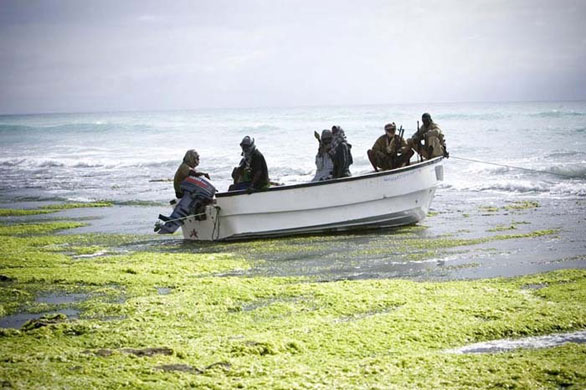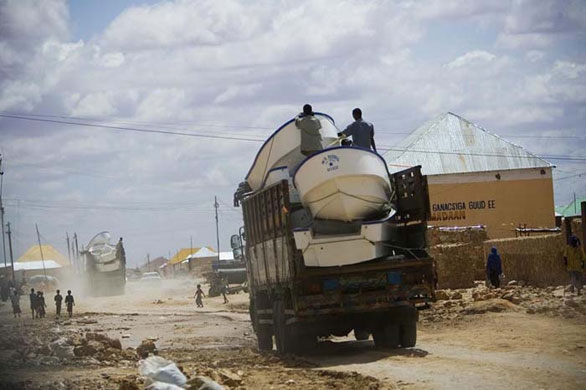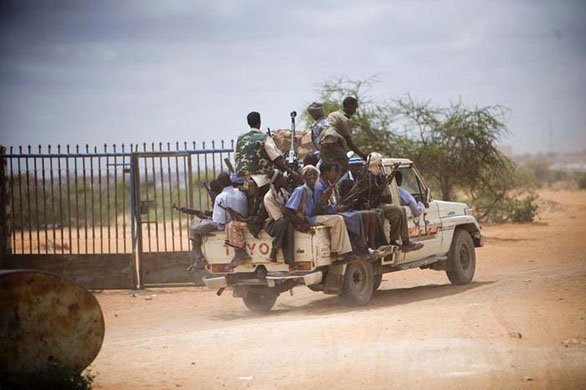On Wednesday, 17, nine pirates armed with guns overtook the Chinese ship Zhenhua 4 owned by China Communications Construction Co. and registered in the Caribbean island of St. Vincent.
Captain Peng Weiyuan sent a distress message to the International Maritime Bureau's piracy reporting center in Kuala Lumpur, Malaysia as he saw the pirates approaching. The bureau quickly alerted the international naval force, which dispatched two helicopters and a warship.
The 30-member crew used Molotov cocktails and a high-pressure water pipe to stop the pirates, then barricaded themselves inside their living quarters.
The helicopters arrived at the scene 90 minutes later and fired at the pirates, forcing them to flee the ship. There were no injuries among the crew, during the five-hour combat.
The warship and one of the helicopters that responded were Malaysian and the other helicopter was part of the Combined Task Force-150, which includes the United States, Denmark, Germany, France, the Netherlands, Britain, Pakistan and Canada. Malaysia cooperates with the task force.

In this photo released by China's Xinhua News Agency, pirates aim weapons on the deck of the Chinese...

Pirates aim weapons on the deck of the Chinese ship "Zhenhua 4" in the Gulf of Aden, on Wednesday, Dec. 17, 2008. (AP Photo/Xinhua) Meanwhile, in Yemen
The Indian navy handed over 23 pirates arrested in the Gulf of Aden Saturday, 13th, after they threatened a merchant vessel in the lawless waters off the Yemeni coast, a Yemeni security official said.
The Indian sailors boarded two pirate boats and seized what was described as a substantial arms cache and equipment at the time. The security official said the pirates included 12 Somalis and 11 Yemenis.
The handover took place in the southern port of Aden, and the pirates were to be interrogated and charged in court. He stressed that Yemen has the right to try Somali pirates because their arrest took place inside Yemeni waters.
The day After
China said Thursday, 18th, that it plans to dispatch warships to join an international effort battling rampant piracy off the coast of Somalia — the Chinese navy's first major mission outside the Pacific.
"We are making preparations and arrangements to deploy naval ships to the Gulf of Aden for escorting operations," said Foreign Ministry spokesman Liu Jianchao.
The Global Times, a newspaper published by the Communist Party, said the fleet could consist of two cruisers armed with guided missiles, special forces and two helicopters and one large supply ship.
For the Chinese navy, which has mainly concentrated on the country's coastal defense, it would mark the first time it has been involved in multilateral operations in modern times, said Christian LeMiere, a senior analyst for Jane's Country Risk, a security intelligence group.
Though China has a huge global commercial maritime presence, the People's Liberation Army Navy has primarily focused on defending China's coast and, until now, limited operations abroad to port calls, goodwill visits and exercises with other navies.
"They're on an actual mission, which could potentially involve combat, albeit of low intensity. That's a real difference," said Lyle Goldstein, director of the China Maritime Studies Institute at the U.S. Naval War College. "This is not a dangerous mission — actually, it's the perfect coming out party for the Chinese navy."
China has never sent military forces overseas other than as part of a U.N.-mandated peacekeeping mission, according to Bonnie Glaser, a China specialist at the Center for Strategic and International Studies in Washington. A Foreign Ministry announcement Thursday that China was making preparations to deploy warships followed a unanimous U.N. Security Council vote this week authorizing nations to conduct land and air attacks against pirates.
From January to November, 1,265 Chinese ships have passed through the area — an average of three to four vessels a day, he said. About 20 percent of them have come under attack.
This year, there have been seven cases of pirate hijackings involving Chinese ships or crews, he said, including Wednesday's attack.
In Washington, Pentagon spokesman Maj. Stewart Upton said the U.S. welcomed China's move. "We look forward to working with the Chinese both bilaterally and multilaterally on this challenge to international security," he said.
China's warships would join ships from the U.S., Denmark, Italy, Russia and other countries in patrolling the Gulf of Aden, which is one of the world's busiest waterways and has become infested with heavily armed Somali pirates.

In this Dec. 23, 2008 file photo, German Defence Minister Franz Josef Jung, left, watches German...

